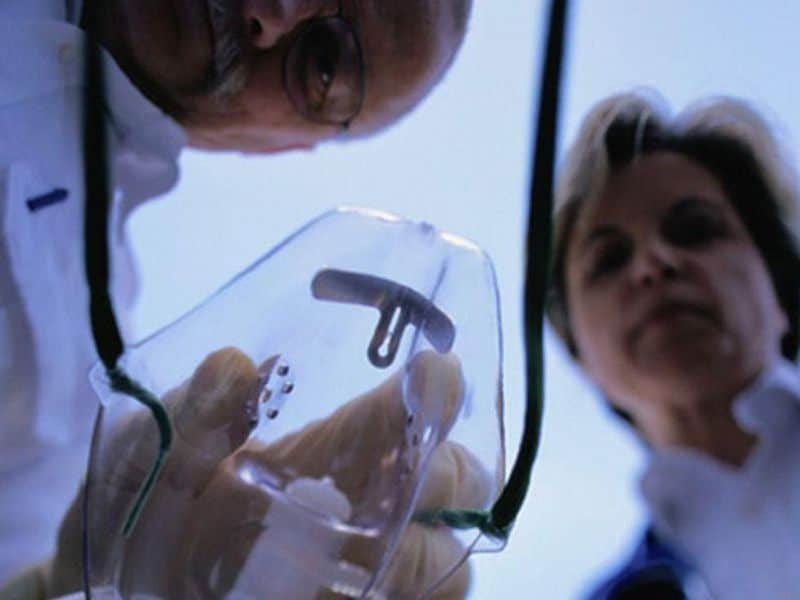The annual meeting of the American Society of Anesthesiologists was held from Oct. 9 to 13 in San Diego and attracted approximately 15,000 participants from around the world, including anesthesiologists and other health care professionals. The conference featured presentations focusing on the latest advances in the relief of pain and total care of surgical patients prior to, during, and after surgery.
In a quality improvement project, Tyler Morrissey, M.D., of the University of Colorado School of Medicine in Aurora, and colleagues increased perioperative influenza vaccination among children by 3,500 percent compared with last year’s flu season, without any process- or vaccine-related complications reported.
The authors offered influenza vaccination to all children undergoing elective general anesthesia from Monday to Friday. When the patient checked in for surgery, a “Best Practice Alert” pop-up would initiate on the intake nurse’s computer screen if the patient did not have documented influenza vaccination for the season. Next, the nurse would determine, using a series of questions, if the patient was eligible for the vaccine and would obtain parental consent. The investigators then tracked the number of vaccines dispensed and given in the perianesthesia environment compared with last year to determine if certain demographics were more or less likely to receive vaccines, as well as to identify other barriers to vaccination.
“If offered, a significant number of pediatric patients and families would jump at the opportunity to be vaccinated under anesthesia. Additional research into anesthesia’s impact on the immune response to vaccination and potential vaccine complications during the postoperative period is warranted,” Morrissey said. “Vaccination under anesthesia remains a controversial topic, but our project demonstrates that general anesthesia may be a ‘teachable moment’ for vaccination for patients and their families.”
In another study, Gia Pittet, Ph.D., of the University of California in Los Angeles (UCLA), and colleagues found that one in five opioid-naive surgical patients continues to use opioids beyond 90 postoperative days.
The authors developed a novel algorithm to merge the UCLA surgical cohort with the California state narcotics data to create a complete prescription catch approach for narcotic refills beyond the UCLA health system within the state of California. Different statistical modeling methods, including data modeling and algorithmic modeling, were employed, and their performance was compared to find the best performing model. The researchers found that certain risk factors for persistent opioid use were potentially modifiable before surgery, and smoking proved to be a key predictor of new persistent postoperative opioid use.
“The identification of important significant risk factors will help to assist physicians in their decision to refer the patients for additional medical management, provide patient educational counseling, and alter perioperative care choices, such as a limited or nonopioid multimodal analgesia in the perioperative period, or carefully managing opioid use throughout the perioperative period with increased frequency and intensity of adherence monitoring during opioid medication management,” Pittet said. “Hospitals should follow patients and measure continuing opioid use at a longer duration (90+ days), instead of several days or weeks past surgery. Primary care physicians need to be included in this longer-term adherence monitoring effort.”
In a retrospective, hospital registry study, Maximilian Schaefer, M.D., of the Beth Israel Deaconess Medical Center and Harvard Medical School in Boston, and colleagues found that dexamethasone, a commonly used drug for prevention of postoperative nausea and vomiting, may improve postoperative survival in patients undergoing oncologic surgery for nonimmunogenic cancers.
The authors evaluated 74,058 records of patients who had surgeries to remove nonimmunogenic cancerous tumors between 2005 and 2020 at Beth Israel Deaconess Medical, and between 2007 and 2015 at Massachusetts General Hospital. The researchers found that administration of dexamethasone during oncologic surgery was associated with a 21 percent lower risk for mortality within one year after surgery. This effect was only present in nonimmunogenic cancer types. Meanwhile, dexamethasone was associated with an increased risk for postoperative hyperglycemia.
“The data should encourage anesthesiologists to administer dexamethasone for oncologic surgery, and inform future randomized studies,” Schaefer said.
ASA: Spinal Anesthesia Not Superior for Hip Fracture Surgery
WEDNESDAY, Oct. 13, 2021 (HealthDay News) — For older adults undergoing surgery for hip fracture, survival and recovery of ambulation at 60 days do not differ significantly with use of spinal versus general anesthesia, according to a study published online Oct. 9 in the New England Journal of Medicine to coincide with the annual meeting of the American Society of Anesthesiologists, held from Oct. 8 to 12 in San Diego.
ASA: Dexamethasone Use During Cancer Surgery May Reduce Mortality
WEDNESDAY, Oct. 13, 2021 (HealthDay News) — Administration of dexamethasone during cancer surgery for prevention of nausea and vomiting after surgery is associated with reduced 90-day mortality, according to a study presented at the annual meeting of the American Society of Anesthesiologists, held from Oct. 8 to 12 in San Diego.
ASA: Intraoperative Acupuncture May Help Cut Post-TKA Opioid Use
WEDNESDAY, Oct. 13, 2021 (HealthDay News) — Integrating intraoperative electroauricular acupuncture is feasible for minimizing postoperative opioid usage among patients undergoing total knee arthroplasty, according to a study presented at the annual meeting of the American Society of Anesthesiologists, held from Oct. 8 to 12 in San Diego.
ASA: Symptomatic COVID-19 Tied to More Emergency Deliveries
TUESDAY, Oct. 12, 2021 (HealthDay News) — Pregnant women with symptomatic COVID-19 have a higher percentage of emergency complications during delivery than asymptomatic COVID-19-positive women, according to a study presented at the annual meeting of the American Society of Anesthesiologists, held from Oct. 8 to 12 in San Diego.
ASA: Standing Oral Acetaminophen Before Tonsillectomy Cuts IV Usage
TUESDAY, Oct. 12, 2021 (HealthDay News) — Administering oral acetaminophen to all pediatric patients undergoing tonsillectomy during the preoperative admission process reduces intravenous acetaminophen use, according to a study presented at the annual meeting of the American Society of Anesthesiologists, held from Oct. 8 to 12 in San Diego.
Copyright © 2021 HealthDay. All rights reserved.


